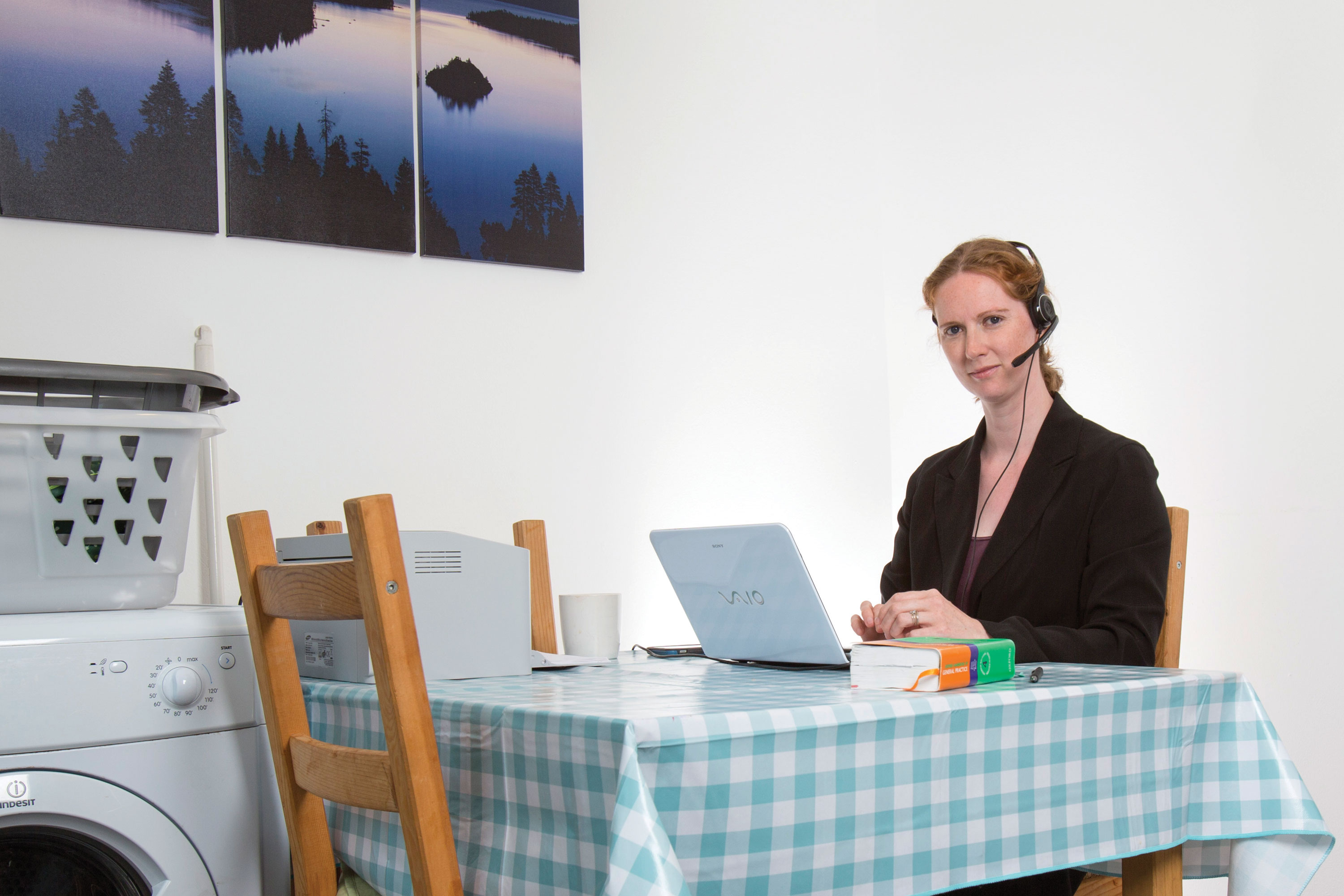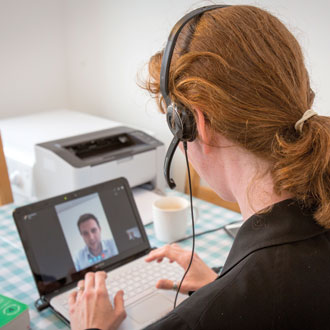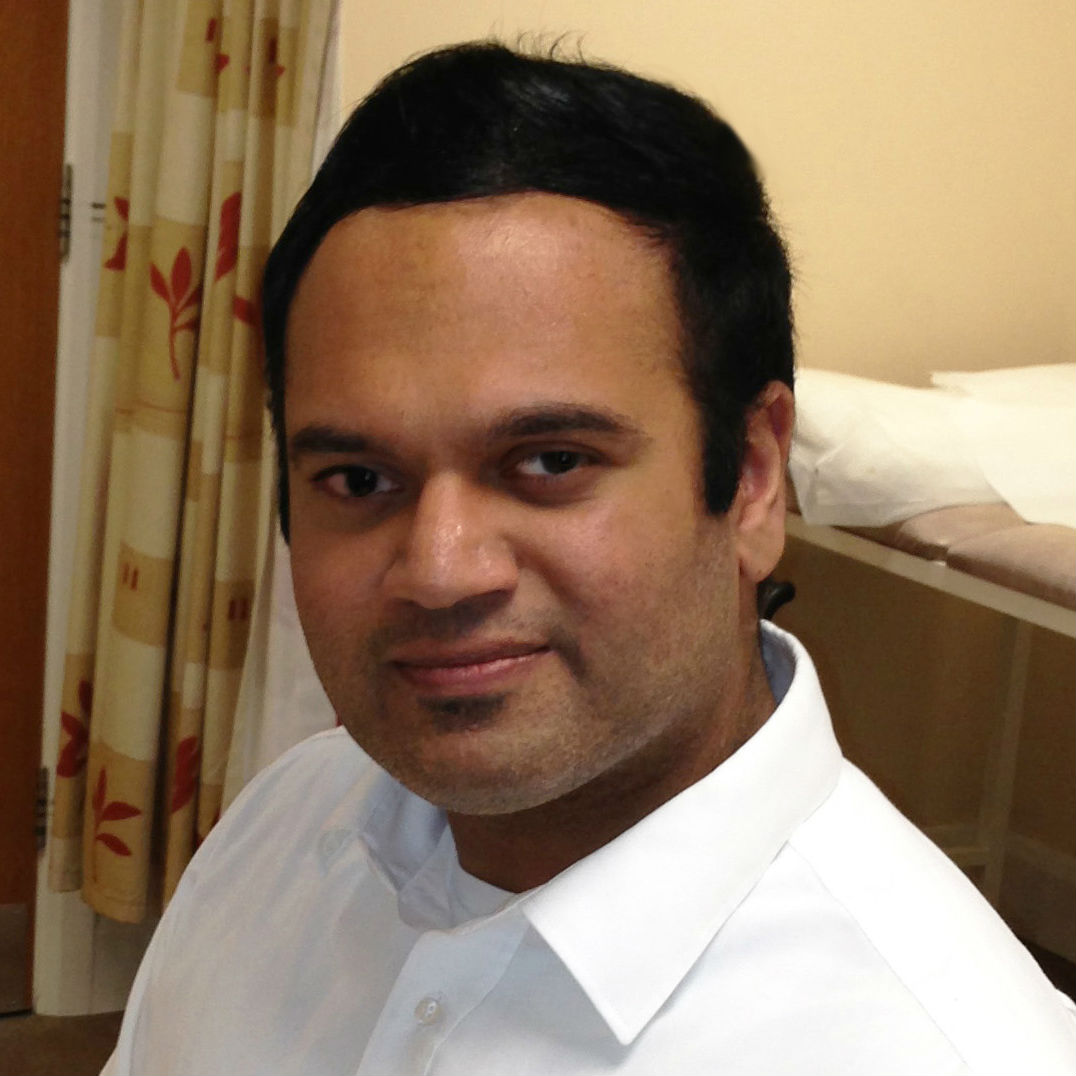Meet the digital GPs


The video GP

How does your system work?
We wanted to use a video consultation system to improve access to the practice. We trialled a new software package from EMIS, which included video consultations with the facility that patients could see their records on screen.
However, the EMIS package proved very fiddly because the patient had to download complicated software, so we’ve started using Skype. Since Skype is not a secure method, we obtain written consent from patients before a Skype consultation. We are soon moving to a secure video system, either Skype for business or Jabba.
What are the advantages?
We have found video consultations to be a great step forward for home visits. In my practice we’ve employed a practice paramedic who does the majority of home visits. When they are in the patient’s home or a nursing home, they set up the video consultation and we have a case conference involving the patient, their carers, the paramedic and the GP. This saves the GP a lot of travelling time. I have probably two or three video consultations a day with the paramedic.
What are the disadvantages?
There has been very low uptake from patients themselves. I don’t think I’ve had any patients choosing video consultations in the past three months. The feedback was: if I’m going to do something remotely, I’d rather do it on the telephone as it’s far more discreet and if I want a face-to-face consultation I’ll come in. We’ve ended up using the system much more for home visits, as described above.
How much does it cost you or the patient?
The only extra kit we’ve needed is a second computer screen and headsets, which are paid for by the CCG as it provides all of the IT hardware and software. Training for GPs and other staff has been funded through the Prime Minister’s Challenge Fund: we were successful in wave 2, the main thrust of which is about improving access to primary care.
Do you think this will be the future of healthcare?
I think it will be used more frequently in the way we use it with our paramedic – video consultations for case conferences that include clinicians in different locations, and the patient and carers.
Dr Mark Spencer is GP in Fleetwood, Lancashire, and co-chair of NHS Alliance
The app GP

How does the system work?
I work for a private health insurer whose members are able to download an app and book consultations with a GP between 8am and 7pm, up to 48 hours beforehand. At the time of consultation, the GP initiates the call through the app and we have a normal consultation over video. Patients get 30-minute appointments, but the time taken varies depending on the complexity of the problem. The appointment time might reduce as things get slicker and the system develops more.
If the patient needs a face-to-face appointment they are advised to go to their NHS GP unless I feel I’ve done everything I can and can refer for a specialist examination.
I do three sessions a week at the moment, between four and five hours each, from home. I’ve got scope to do more if I’d like to but at the moment that suits me really well.
What are the advantages?
It’s so flexible. I’ve worked a long time in an actual surgery and it is really tough when you have kids. The days were very long and I couldn’t predict what time I’d be able to get home, particularly if I was on call. I’m also very much drawn to the innovation of this form of doctoring. I think it is amazing that I can be consulting in my home and reach somebody on the other side of the country. I’ve got a portfolio career and I do a lot of out-of-hours work as well, which is how I keep my clinical skills up.
What are the disadvantages?
It might seem lonely because I’m working at home, but I actually don’t feel alone because I’ve got a great back-up team in the office. If I’ve got clinical concerns there’s a number I can call and speak to a very experienced clinician. Also, obviously I can’t perform examinations so sometimes I have to advise patients to see an NHS GP face to face – but most people understand.
And there’s an amazing amount you can do – you can get people to look in their own throats and prod their own abdomens as long as you proceed with care. You have to be more cautious because you’re not with the patient in the room – especially on the first contact, you have to make sure you’ve got all their history.
How much does it cost you or the patient?
The service is open to people with this particular type of health insurance, which they or their employer have bought.
Is this the future of healthcare?
I think this is a huge area for expansion in general practice and it’s not used enough. In my out-of-hours role it would be brilliant to have a system like this. You can deal with so much over the phone and avoid the need for a home visit.
Dr Morven Telling is a sessional GP in Whitby, Yorkshire and also works for private health insurer Vitality
The online consultation GP

How does the system work?
Our NHS practice uses an algorithm that guides patients through a series of questions to build up a history. There is a link to the system on our practice website, and patients just have to click to enter the e-consultation system.
The patient initially puts in two words to describe their condition, for example ‘rasping cough’. The system then identifies a series of follow-up questions that change according to their answers. The questions can take between two and 20 minutes to complete.
The system also questions the patient about other areas they might not have complained about (to check they are okay) and collects a family history.
The patient’s answers are then emailed to the practice. Our reception staff put the details onto the patient’s notes so there is a full record. The patient might specify a GP they want to talk to, but if not, staff will pass the case to the next available GP who will phone the patient, and decide whether they need to come in or whether they need to start medication, for example.
What are the advantages?
It speeds up the process. Looking at the patient’s answers takes probably a minute or so, compared with the five to 10 minutes it takes to get the history from talking to the patient directly.
This means that as soon as you start speaking to the patient you’re engaging with the issue.
As a practice we probably do about 40 of these contacts a day. It helps us to see more patients and be more efficient.
What are the disadvantages?
Some patients like it, some don’t; and the ones that don’t make a fuss. But overall, 85% of patients think it’s as good if not better than our previous triage system.
Occasionally you can’t get back to the patient so you keep trying to phone, but that’s no different from our previous system.
How much does it cost you or the patient?
The company providing our system charges us about £1 per patient in the practice, so it’s not cheap. But if it saves time, it has the potential very quickly to pay itself off.
Is this the future of healthcare?
I think it’s inevitable – everything is going online. If that’s the way people are shopping or accessing other services, healthcare will follow.
Dr Rupert Bankart is a GP in Peterborough and his practice uses the AskmyGP system
The online pharmacy GP

How does the service work?
We offer free online consultations for a specific treatment area, for example weight loss or eczema. As a private service, we don’t have access to patients’ full GP notes so we ask them to fill in an online questionnaire, which gathers as much information as possible about their medical history.
For their specific query, the questionnaire asks what symptoms they have, what medications they have tried and whether their GP has seen and diagnosed it. Within 24 hours a doctor will have reviewed this ‘consultation’. There might be a bit of back and forth, with the doctor requesting more information such as photos through the website’s secure online messaging system (we avoid email because it’s not entirely secure).
Sometimes we need to get a blood test done and they can do this at home using fingerprint testing. We can then offer treatment if appropriate and send the medication directly to the patient.
This allows us to treat a fairly specific range of conditions. Obviously we’re extra careful, and don’t want to treat anything that we couldn’t formulate a good diagnosis for.
We try to offer the same quality service as a local GP and pharmacy, but with the convenience and confidentiality of online access, and we’re CQC registered. People come to us because the NHS doesn’t offer everything. Drug budgets are being cut, medications are no longer allowed by certain health boards and so people are looking for private treatment.
And we’re an easy way into private treatment because we’re online so have a much lower fee – our consultation is free and we only charge if we prescribe medication.
What are the advantages?
Sometimes patients will come to us when they’re too embarrassed to see their own GP, for example for erectile dysfunction. Or they might think their problem is too trivial to take to their GP so they get diagnosis and treatment for conditions they might otherwise have left.
What are the disadvantages?
Because we don’t see the patient we have to be extremely careful. Sometimes that means we can’t diagnose a condition or prescribe medication, which can cause disappointment.
How much does it cost you or the patient?
I probably average about two sessions a week on top of my general work as a GP partner, spread over the week. I’m paid by the number of patients I look after – on an hourly basis I suppose it would be very similar to a locum GP rate for an out-of-hours service.
There is a wide variation in how much the service costs the patient. It depends on what medication might be appropriate. If a patient consults us and it’s not appropriate to prescribe, there’s no charge. If prescribing is appropriate, the cost varies depending on the medication. For example, a prescription for acne topical medication is about £18 for a month, whereas a three-month course of hair loss medication is about £110 and the drugs are posted directly to the patient.
Is this the future of healthcare?
I think that would be quite a big statement. I think there are aspects that the NHS could learn from in terms of things that can be managed without needing a face-to-face GP appointment. But I regard my core job as sitting with a patient.
I think this service is an adjunct rather than the future of general practice. I hope that over time it becomes a more accepted service and that the average GP can say ‘I can’t prescribe because the health board won’t let me, but maybe this other service can help you.’
Dr Nitin Shori is a GP partner in Wales and a medical director of the Pharmacy2U online doctor service
Pulse July survey
Take our July 2025 survey to potentially win £1.000 worth of tokens











